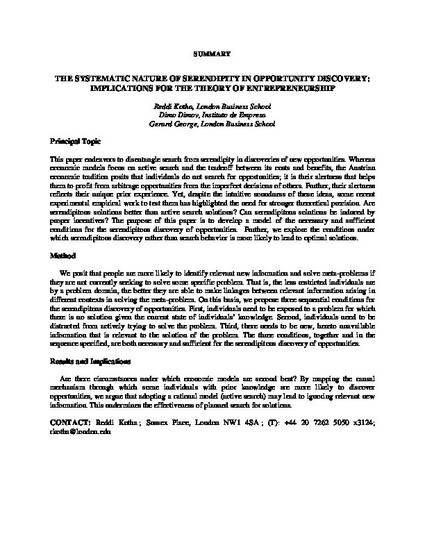
This paper endeavors to disentangle search from serendipity in discoveries of new opportunities. Whereas economic models focus on active search and the tradeoff between its costs and benefits, the Austrian economic tradition posits that individuals do not search for opportunities; it is their alertness that helps them to profit from arbitrage opportunities from the imperfect decisions of others. Further, their alertness reflects their unique prior experience. Yet, despite the intuitive soundness of these ideas, some recent experimental empirical work to test them has highlighted the need for stronger theoretical precision. Are serendipitous solutions better than active search solutions? Can serendipitous solutions be induced by proper incentives? The purpose of this paper is to develop a model of the necessary and sufficient conditions for the serendipitous discovery of opportunities. Further, we explore the conditions under which serendipitous discovery rather than search behavior is more likely to lead to optimal solutions.
Available at: http://works.bepress.com/gerard-george/103/
